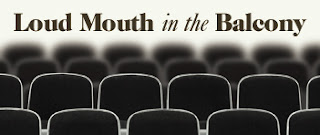
I stopped watching the evening news and switched to online newspapers. Not only was I was burned out, after 20 years in TV news, I typically felt emotionally drained at the end of the newscast, a bit overwhelmed by man’s inhumanity to man.
Now that watching is no longer a job requirement, I choose not. If a headline is screaming bad news, I can instantly dash to another part of the page; I don’t have to sit through the bloody details or watch the crime scene video.
I swear, if one more anchor reported a “senseless” murder, I was going to scream. Are there any murders that make sense? Let’s see: Five women slain in a clothing store, man opens fire in a shopping mall, a Boy Scout kills his parents, women suicide bombers wreak havoc. Which of these made sense?
The acts are becoming more and more bizarre, more and more inhumane. I could be wrong, but I’ve theorized that the way we solve problems is directly related to our beliefs about God.
We can be as punitive and unforgiving as the God who kicked Adam and Eve to kingdom come. We can be as outraged and brutal as the God who commits filicide or genocide. We believe that Our Father solves problems by killing His own, torturing His own, threatening His own. He favors some over others. Human life is expendable.
We were taught this as children. It’s deeply seeded in our psyches: this is the way to solve problems. This is the way we treat others.
In that context, murders make perfect sense, and they will continue until we shift our perceptions about what God is and what God does, until we decide to believe that God behaves more divinely.
It’s an option. I’m not sure if we can do it; we are so attached to the sadistic model of God. In fact, we believe that God will torture us eternally, if we believe otherwise. Fascinating stuff.
At times, it seems hopeless to think that we can grasp how heinous we believe God is. Only a Pollyanna would believe that we can challenge these reports of Godly misconduct by asking, “Would LOVE do that?”
There is hope. Today, I am filled with it, after receiving an email today from the Rev. Shaheerah Stephens, a New Thought minister in Detroit. Maybe you’d like some hope, too:
The Shift Movie



